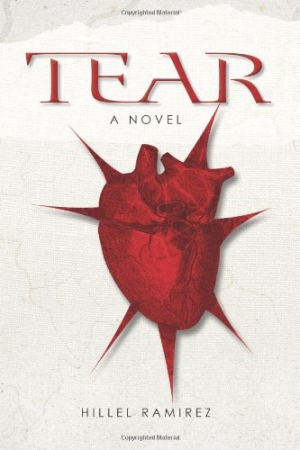Tear
For those who love complex and compelling family sagas, Hillel Ramirez’s poignant debut will make readers tear up while tearing them apart inside.
In Tear, the Weitzmanns, a family of Cuban-American Jews, grapple with the dysfunction foisted upon them by the accumulation of culture clash, racism, unhealthy coping mechanisms, and twisted family dynamics. As twentysomethings, brilliant but angry physician Joaquin, his smart, social-justice-oriented sister, Consuelo, and the spoiled, bitter Deidre (the eldest) return to their childhood home in Miami to be with their ailing father. Upon their arrival, they discover that the relationship between their parents, Dolores and Santiago, is as toxic as ever. The pilgrimage back to the homestead reopens wounds for everyone as the story plays out over years, shifting from past to present and back again.
Although the narrative’s main focus is Joaquin and the obstacles he encounters as he rises from an eager medical student to become a virtuoso cardiologist, readers are also treated to the nuanced viewpoints of his family members. Ramirez masterfully shows how past events shape one’s present character. He also delves into the thorny parent-child relationship in which adult offspring still seek approval from their mother and father while simultaneously recognizing parental shortcomings. The Weitzmann siblings care deeply for Santiago, but at the same time they feel the hurt caused by his lies and his belittling of their accomplishments. And even before Dolores becomes a cartoonish, villainous caricature near the end of the novel, her love for Deidre, whom she seems to favor for her physical beauty, ultimately leaves the eldest Weitzmann offspring selfish and emotionally broken.
As brown-skinned Jews hailing from Cuba, the Weitzmanns endure a mixture of racism and anti-Semitism which manifests itself in subtle yet insidious ways. Joaquin bears the brunt of this prejudice. He experiences bigotry from colleagues and patients alike who think Cuban Jew is an oxymoron and who don’t want his multiethnic kind around. Yet, Ramirez ingeniously demonstrates that being a Cuban Jew is a balancing act of identities—waters that multicultural Americans navigate every day.
The author’s background as a physician offers a rich realism to Joaquin’s journey to become an MD. Although the detail is sometimes excessive, the medical descriptions underscore Joaquin’s amazing ability to make sense of data and arrive at a diagnosis, while giving lay readers a taste of the technical terms and procedures that abound in a doctor’s training.
In a similar vein, the author’s incorporation of Spanish dialog adds authenticity, but his directing readers to English translations in footnotes breaks the rhythm of the story. Almost every chapter title is footnoted as well, offering suggestions of music for readers to listen to. While the author’s attempt to combine melodies and text is fascinating, one wishes he could have achieved his purpose without footnotes and that he had added information as to why each piece was pertinent. Thankfully, though, the footnotes can be ignored, and much of the Spanish can be understood through contextual clues.
Readers who love multifaceted family dramas will tear through Tear in no time.
Reviewed by
Jill Allen
Disclosure: This article is not an endorsement, but a review. The publisher of this book provided free copies of the book and paid a small fee to have their book reviewed by a professional reviewer. Foreword Reviews and Clarion Reviews make no guarantee that the publisher will receive a positive review. Foreword Magazine, Inc. is disclosing this in accordance with the Federal Trade Commission’s 16 CFR, Part 255.

